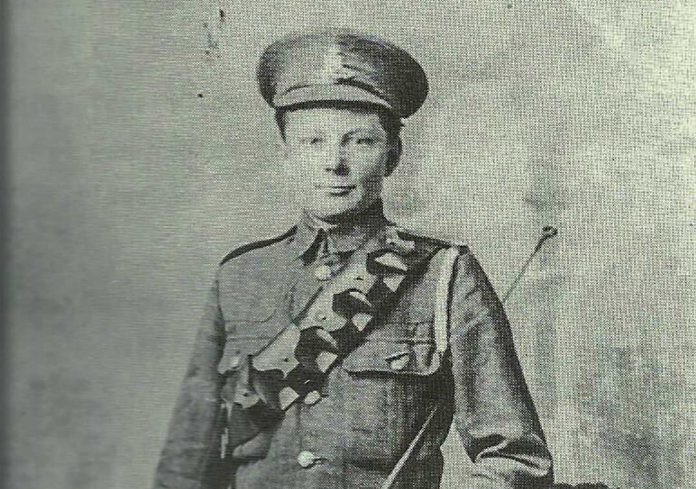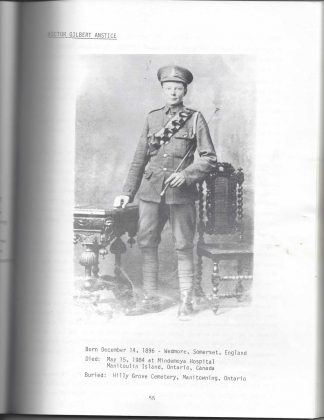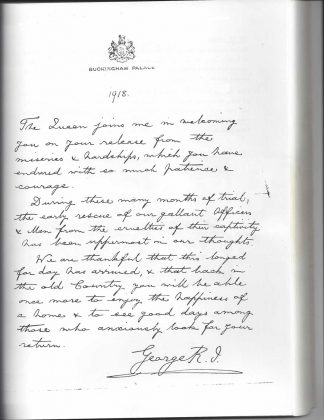Victor Anstice spent nine months of his life in a Frankfurt, Germany prisoner-of-war (POW) camp during the First World War.
“When the French and British attacked first in 1914, there was only eight in his regiment that survived,” Victor’s son Ron Anstice, of Tehkummah, told The Expositor.
Victor, born in Wedmore, England, served in the British army as a Lewis gunner in the Royal Warwickshire Regiment. The Lewis was a type of machine gun that saw heavy use by fighters for the British Empire starting in the First World War. Ron said there was a small group left holding their position in France or Belgium when they ran out of ammunition and were charged by the Germans.
“One of the crew ran and they shot him. The other two guys, with my dad, held up their hands,” said Ron.
The Germans took the men to help bury their dead, after which Victor remained in the POW camp. Ron said the British government did not know whether he was alive or dead. He said all the other prisoners received care packages from the Red Cross, but his father never received anything because he had been reported missing-in-action (MIA) for six months.
“He came to Canada in 1920 after the war,” said Ron. “He was wounded with shrapnel but never got no pension.”
Ron said his father came to see Victor’s brother Sam in Snowville (just north of Tehkummah). He had planned to go through to Toronto but ended up settling on the Island, working on a farm and butchering. He served on council and was a tax collector for the township, purchasing the Anstice family farm adjacent to Tehkummah Village from the Smeltzer family in the 1920s.
“He told a lot of stories. He had a lot of nightmares. He’d wake up in the middle of the night and ask, ‘who goes there?’”
“There were a lot of bad stories,” said Ron, who grew up in Tehkummah with four siblings. “We always listened. He didn’t tell many but he told a few.”
When Ron was about five years old, his father received a hand-written letter from King George V, the reigning monarch of the British Empire during the First World War.
“The Queen joins me in welcoming your release from the miseries and hardships which you have endured with so much patience and courage,” King George wrote.
Ron said he has since moved away from the farm and is now living in the town of Tehkummah. This year, Ron said he did not have any major plans to commemorate the 100th anniversary of the armistice. When asked about the 100 bell salutes across the country, Ron had a unique response.
“On the farm we had a bell up on a pole. The Smeltzers used to ring it at noon to get the men in from the field when plowing, or rang it whenever there was a fire or something important,” said Ron.
“If I can get someone to ring it, I’ll get somebody to do it. It’d be a surprise around here; we never rang it.”









